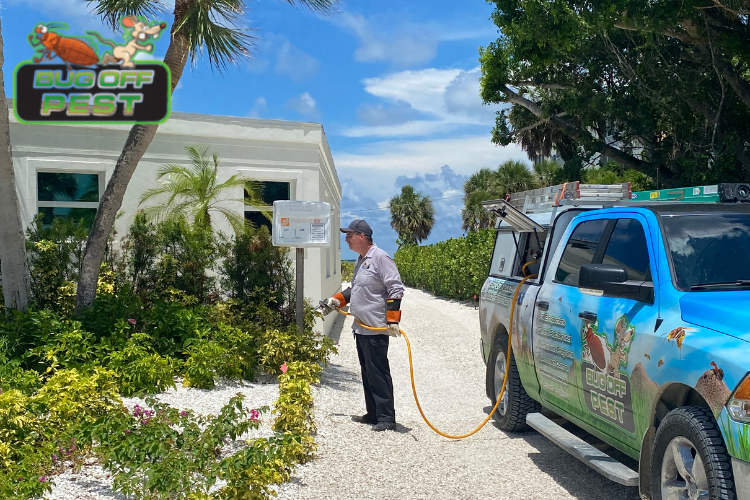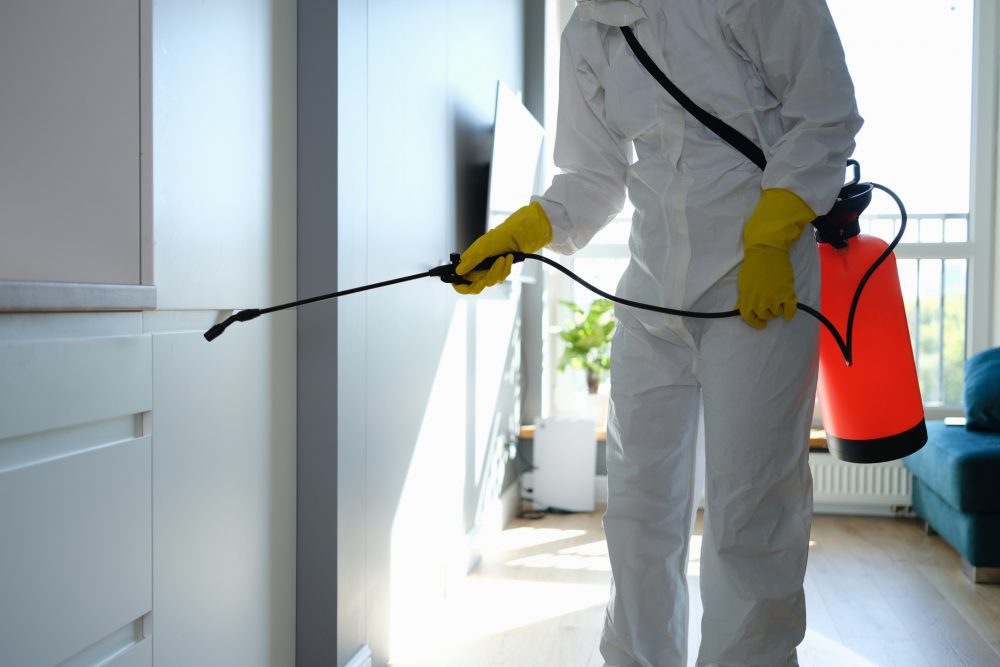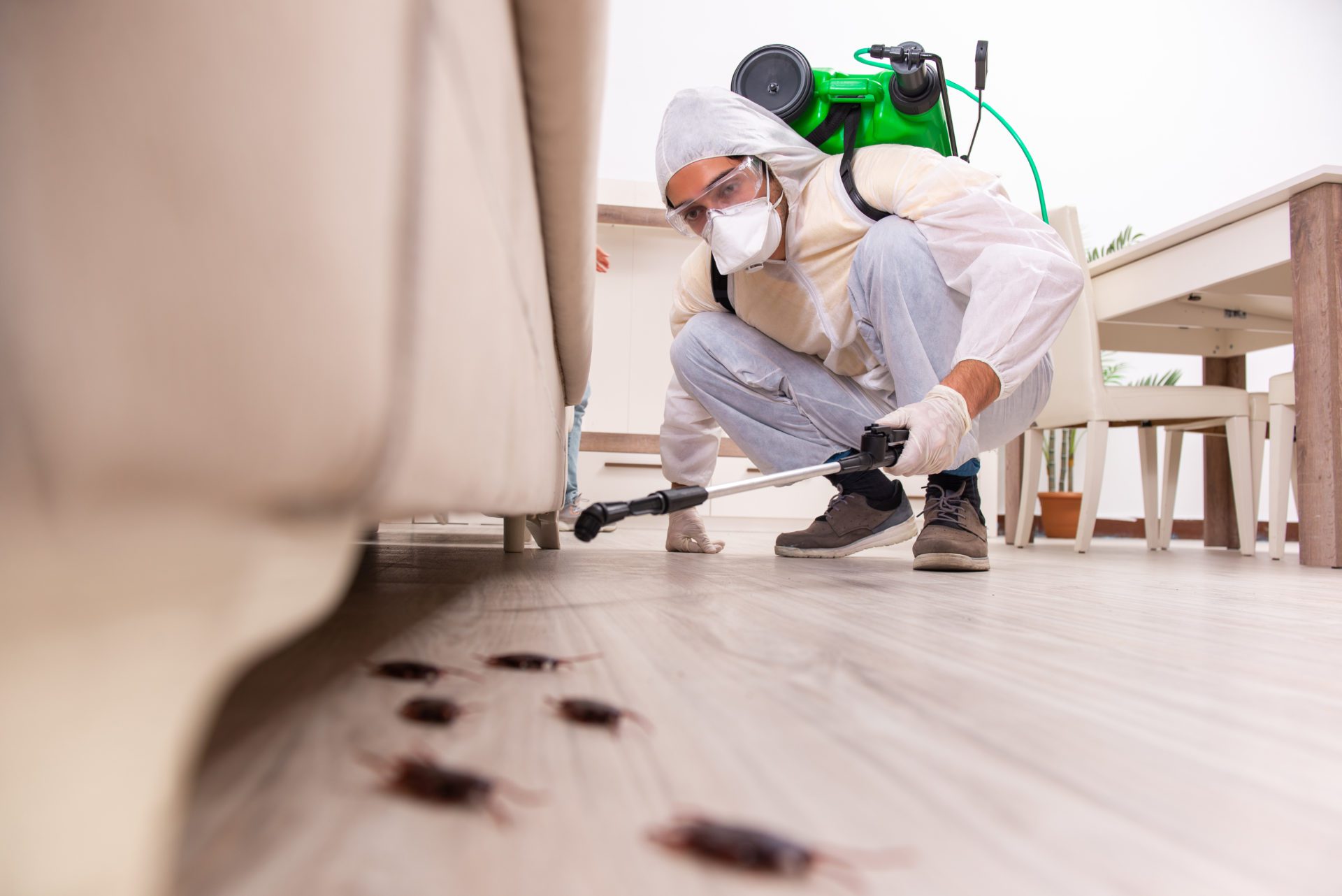Local Residential Pest Control Service in Port Charlotte
Local Residential Pest Control Service in Port Charlotte
Blog Article
Uncover the Relevance of Pest Control in Maintaining a Healthy And Balanced Setting and Treatment Techniques
Parasite control plays an essential function in safeguarding not just human health and wellness yet also the fragile equilibrium of our ecological communities. As we check out the ramifications of parasite control practices, it comes to be imperative to consider both the prompt benefits and the long-lasting sustainability of our environment.
The Duty of Insects in Communities
Pests, commonly checked out solely as problems, play a diverse duty in environments that is vital for preserving ecological equilibrium. They contribute dramatically to various ecological processes, including pollination, nutrition cycling, and parasite control. As an example, numerous insect types, such as and butterflies, are important pollinators for a vast array of plants, which consequently supports biodiversity and food manufacturing.
Additionally, parasites offer as prey for numerous killers, developing a crucial web link in food internet. This connection ensures the survival of various species and helps control populaces within ecological communities. In addition, decomposer parasites, such as certain beetles and fungis, contribute in breaking down raw material, hence enriching dirt and assisting in vitamins and mineral recycling.
On the other hand, while parasites can be beneficial, their overpopulation or invasion right into non-native atmospheres may disrupt these eco-friendly functions. This intricacy highlights the value of understanding insect dynamics, as effective pest administration approaches have to think about both their eco-friendly roles and potential influences on human activities. Stabilizing pest existence while lessening damage is crucial for protecting the integrity of environments and ensuring farming performance.
Wellness Dangers Connected With Bugs

The visibility of bugs in various atmospheres expands past their environmental functions, as they additionally posture considerable health risks to people and pets. Several pests, including rodents, insects, and parasites, are service providers of diseases that can have serious wellness effects. For circumstances, rats are known to transmit hantavirus and leptospirosis, both of which can result in severe respiratory and renal issues, respectively.
Pests such as insects and ticks are infamous for spreading vector-borne diseases like jungle fever, dengue fever, and Lyme illness. These illnesses can lead to high morbidity and death rates, specifically in susceptible populations. Additionally, bugs like cockroaches and insects can intensify allergies and asthma, adding to breathing issues in people, particularly those with pre-existing problems.
Moreover, the existence of insects can result in mental stress and pain, influencing overall health. Contamination of food and surface areas by pest droppings and remains can result in foodborne diseases, highlighting the significance of maintaining sanitary conditions - Pest Control in Port Charlotte, FL. For that reason, recognizing the wellness risks connected with bugs is essential in identifying the need of reliable parasite administration methods to guard human and animal health.
Benefits of Efficient Insect Control
Efficient bug try this out control is crucial for preserving a healthy and risk-free environment, as it regularly mitigates the countless dangers linked with insect infestations. One of the primary benefits of reliable bug monitoring is the reduction of wellness risks.

Another significant benefit is the improvement of overall high quality of life. A pest-free environment adds to psychological health and reduces anxiety related to infestations. Moreover, reliable pest control cultivates a more secure setting for youngsters and family pets, ensuring that homes stay refuges without dangerous chemicals and disease-causing organisms.
Common Parasite Control Techniques
In the realm of pest administration, various techniques are used to deal with infestations properly. These techniques can be generally classified into three major methods: cultural, mechanical, and chemical controls.
Cultural control entails customizing methods to decrease parasite establishment, reproduction, and survival. This may include plant rotation, correct sanitation, and environment manipulation, which collectively develop a setting less for pest spreading.
Mechanical control uses physical methods to eliminate bugs. Techniques such as catches, obstacles, and vacuum cleaners are commonly used to directly remove bugs from a location. This strategy is especially efficient for managing rats and pests without using damaging chemicals.
Chemical control involves the application of pesticides to manage parasites. These compounds can be classified right into pesticides, herbicides, and fungicides, each targeting specific kinds of insects. It is vital to make use of these chemicals carefully, adhering to safety standards and guidelines to minimize possible injury to non-target species and the environment.
Each pest control strategy has its benefits and limitations, and usually, an integrated method incorporating multiple approaches generates the most effective outcomes in keeping a pest-free setting.
Sustainable Pest Management Practices

Integrated Parasite Administration (IPM) is a foundation of lasting practices, integrating biological, cultural, mechanical, and chemical methods to manage insects. Organic control involves presenting natural predators or parasites to subdue pest populations. Cultural techniques, such as plant turning and polyculture, interrupt pest life process and improve ecosystem resilience.
Mechanical techniques, such as traps or obstacles, can properly stop bug access without chemical treatment (Pest Control in Port Charlotte, FL). Furthermore, keeping healthy and balanced ecological communities with proper dirt monitoring, plant health and wellness, and biodiversity can normally minimize insect issues
Education and awareness are vital parts, empowering individuals and communities to recognize bug threats early and implement safety nets. By cultivating a holistic technique that balances bug control with environmental honesty, sustainable parasite management methods not just shield plants and structures yet likewise add to a healthier atmosphere for future generations.
Verdict
Reliable parasite control is vital for safeguarding public health and maintaining environmental equilibrium. By recognizing the duty of pests, recognizing associated health and wellness dangers, and using diverse treatment methods, a sustainable technique to pest monitoring can be accomplished. Integrated Insect Monitoring (IPM) highlights an alternative technique that reduces injury to valuable organisms while effectively controlling parasite populations - Pest Control in Port Charlotte, FL. Inevitably, liable bug management cultivates a much healthier atmosphere, advertising both human wellness and the stability of ecosystems.
Report this page